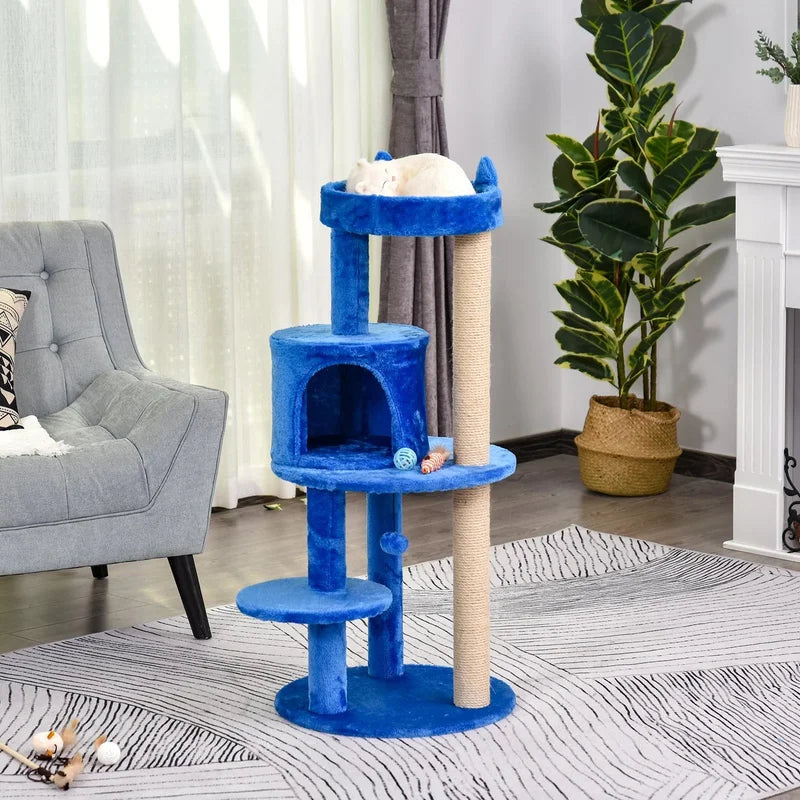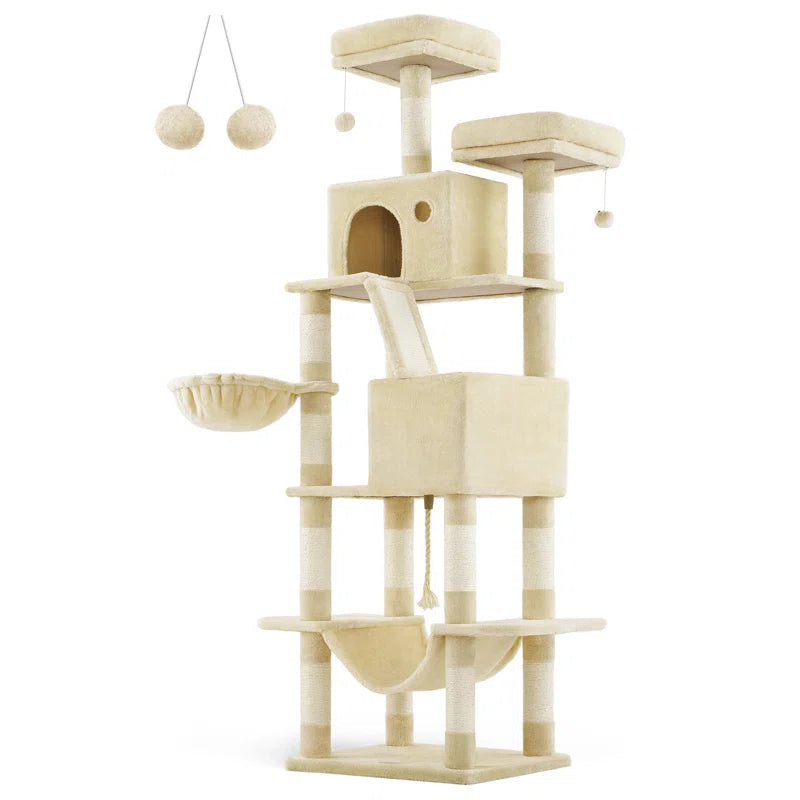10 Proven Solutions to Stop Your Cat from Scratching the Couch

To keep your cat from scratching the couch, provide appropriate scratching posts, use deterrent sprays, apply double-sided tape or vinyl sheets, install scratch guards, trim nails regularly, use claw caps, redirect with toys, use scent deterrents, rearrange furniture, and consider professional behaviour modification if needed. These methods address your cat's natural scratching instincts while protecting your furniture.
Cats scratch. It's an instinctive behavior that helps them mark territory, stretch muscles, and maintain claw health. However, when your favorite feline decides your couch is the perfect scratching post, it can lead to frustration and damaged furniture. Understanding why cats scratch is the first step in redirecting this behavior to more appropriate surfaces.
Provide appropriate scratching posts
The most effective way to deter couch scratching is to offer an appealing alternative. Cat trees with sisal rope-covered posts are irresistible to most cats. The Barnstaple 84Cm H Cat Tree provides multiple scratching surfaces and perches, satisfying your cat's scratching and climbing instincts.

Place scratching posts near your cat's favorite scratching spots, including next to the couch. Experiment with different textures like cardboard or carpet to find what your cat prefers.
Use deterrent sprays
Cats dislike certain scents, which can be used to your advantage. Commercial deterrent sprays are available, or you can create a homemade solution using water and essential oils like citrus or lavender. Always test sprays on a small, inconspicuous area of your couch first to ensure they won't damage the fabric.
Apply double-sided tape or vinyl sheets
Cats don't like sticky surfaces on their paws. Applying double-sided tape or specially designed vinyl sheets to your couch can discourage scratching. These products are typically transparent and won't detract from your couch's appearance. Remove and replace as needed, gradually reducing coverage as your cat learns to avoid scratching the furniture.
Install scratch guards
Scratch guards are clear, adhesive panels that protect your furniture from cat claws. They're easy to install and can be cut to size. These guards provide a smooth surface that's unappealing to cats while preserving your couch's appearance.
Regular nail trimming
Keeping your cat's nails trimmed can reduce the damage caused by scratching. Use cat-specific nail clippers and trim the tips of the nails every two to three weeks. If you're unsure how to do this safely, ask your veterinarian for a demonstration.
Use soft paws or claw caps
Soft paws are vinyl caps that glue onto your cat's nails, blunting them to prevent damage when scratching. They're painless, safe, and come in various colours. While effective, they require regular replacement as your cat's nails grow.
Redirect with toys and play
Engaging your cat in regular play sessions can reduce destructive scratching behaviours. Interactive toys like feather wands or laser pointers can help redirect your cat's energy. Consider the FEANDREA 206cm Cat Tree, which offers multiple levels for climbing and playing, keeping your cat entertained and less likely to scratch inappropriately.

Use scent deterrents
In addition to sprays, you can use natural scents that cats find unpleasant. Place cotton balls soaked in eucalyptus, citronella, or menthol near areas you want to protect. Refresh the scent regularly to maintain its effectiveness.
Rearrange furniture
Sometimes, simply moving furniture can disrupt your cat's scratching routine. Place a scratching post in front of the area your cat typically scratches on the couch. Gradually move the post away as your cat begins to use it regularly.
Consider professional behaviour modification
If scratching persists despite your best efforts, consider consulting a professional animal behaviourist. They can provide personalised strategies based on your cat's specific needs and behaviours.
Conclusion
Protecting your couch from cat scratches requires patience, consistency, and understanding of your cat's needs. By providing appropriate alternatives and using deterrents, you can redirect your cat's scratching behaviour while maintaining a harmonious home environment.
Remember, scratching is a natural and necessary behaviour for cats. The goal is not to stop it entirely but to direct it to appropriate surfaces. With the right approach, both you and your feline friend can live comfortably without sacrificing your furniture or your cat's well-being.
Did you know? Cats have scent glands in their paws, which is one reason why they scratch—it's a way of marking their territory with both visual and olfactory cues.
For more tips on cat care and behaviour, check out these helpful resources:
- How to Replace Rope on a Cat Tree
- Cat Tree Designs for Small Spaces
- Troubleshooting: Why Won't My Cat Use the Scratching Post?
By implementing these solutions and understanding your cat's needs, you can create a scratch-free environment that both you and your feline companion will appreciate.

